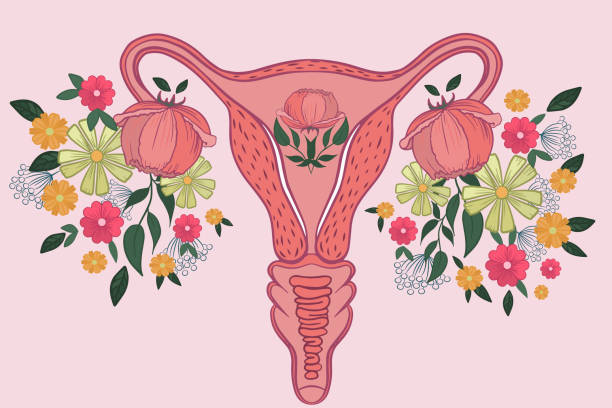
Polycystic Ovary Syndrome is a hormonal disorder that affects women of reproductive age. The most common symptom is irregular menstrual periods. However, PCOS can also cause infertility, weight gain, acne, and excess hair growth. While there is no cure for PCOS, treatment can help manage the symptoms. In this article you will learn about the causes, symptoms, and treatment for PCOS. While there is no cure for it, treatment can help manage the symptoms.
What is Polycystic Ovary Syndrome?
Polycystic ovary syndrome or PCOS is a common hormonal disorder that affects women of childbearing age. The word “polycystic” means “many cysts.” PCOS is a “syndrome,” or group of symptoms that affects the ovaries and ovulation. The main symptoms of polycystic ovary syndrome include irregular or absent menstrual periods, excess male hormone (androgen) levels, and polycystic ovaries. PCOS can also lead to serious health problems, such as infertility, type 2 diabetes, and heart disease.
In PCOS, small fluid-filled sacs grow inside the ovaries. These sacs are actually follicles, that each contain an immature. The eggs never mature enough to trigger ovulation.
The lack of ovulation changes the levels of estrogen, progesterone, FSH, and LH. Androgen levels are higher than usual, while progesterone levels are lower than usual. Extra male hormones disrupt the menstrual cycle, so women with PCOS get fewer periods than usual.
Many women have PCOS but don’t know it. In one study, up to 70 percent of women with PCOS hadn’t been diagnosed.
There is no single cause of PCOS, but it is thought to be a combination of genetic and environmental factors. Treatment for PCOS often includes lifestyle changes, such as diet and exercise, and medication to regulate hormone levels.
What are the Symptoms of Polycystic Ovary Syndrome (PCOS)?
Some women start noticing symptoms of polycystic ovary syndrome around the time they start their period. Others don’t find out they have it until after they’ve gained weight. And PCOS can also cause problems with fertility.
- Acne
- Weight Gain
- Irregular periods
- Heavy bleeding
- Excess hair growth on the face, chest, back, or buttocks (hirsutism)
- Thinning hair on the scalp
- Darkening of the skin or Hyperpigmentation
- Headaches
- Depression
What causes the Symptoms PCOS?
There is no one definitive answer to this question, as the cause of PCOS is likely to be multi-factorial. However, there are some theories about potential causes of PCOS that warrant further investigation.
One theory suggests that PCOS may be caused by insulin resistance, which is when the body’s cells do not respond properly to insulin. Insulin resistance can lead to higher than normal levels of insulin in the blood, and has been linked to other conditions such as obesity and type 2 diabetes.
Another theory suggests that PCOS may be caused by an imbalance in sex hormone levels. In women with PCOS, there may be an excess of androgens (male hormones) which can interfere with ovulation and lead to the development of cysts on the ovaries.
Further research is needed to confirm the exact causes of PCOS, but understanding potential causes is an important step in developing effective treatments for this condition.

How is PCOS Treated?
There is no one-size-fits-all treatment for polycystic ovary syndrome (PCOS), but below are options that can help manage the symptoms:
1. Lifestyle changes: Making lifestyle changes is often the first step in treating PCOS. Losing weight, eating a healthy diet, and getting regular exercise can all help improve the symptoms of PCOS. In some cases, these changes may be enough to manage the condition without the need for medication or surgery.
2. Medication: Many different types of medication can be used to treat PCOS, including birth control pills, anti-androgens, and metformin. Birth control pills can help regulate hormone levels and reduce some of the symptoms of PCOS, like acne and excess hair growth. Anti-androgens can also help reduce these symptoms, as well as improve fertility. Metformin is typically used to treat diabetes, but it can also help with PCOS by improving insulin resistance.
3. Surgery: In some cases, surgery may be necessary to treat PCOS. The most common type of surgery is Laparoscopic ovarian drilling (LOD), which involves making small holes in the ovaries to help improve hormone levels and lowering the amount of testosterone made by the ovaries.
Diet and lifestyle changes can help to manage the symptoms of PCOS. Eating a healthy diet and maintaining a healthy weight are important for managing insulin levels and reducing inflammation. Reducing stress levels can also be helpful in managing PCOS symptoms.
How is PCOS diagnosed?
There is no one definitive test to diagnose PCOS. The most common way to diagnose PCOS is through a combination of a physical exam, a pelvic exam, and blood tests. Your doctor may also recommend an ultrasound of your ovaries to look for the presence of cysts.

When to see a doctor?
If you think you may have PCOS, it’s important to see a doctor. They can help diagnose the condition and develop a treatment plan.
There are a few key things to look for that may signal you have PCOS. If you have irregular periods or no periods at all, this could be a sign.
- If you have missed periods, and you’re not pregnant.
- If you have any other symptoms mentioned above.
- If you’ve been trying to get pregnant but haven’t been successful.
- If you have symptoms of diabetes, such as thirst or hunger, blurred vision, or unexplained weight loss.
If you’re experiencing any of these symptoms, make an appointment with your doctor. They can perform some tests to determine if you have PCOS and develop a treatment plan that’s right for you. For more health tips and insights visit Centric Healthcare.
References:
https://www.mayoclinic.org/diseases-conditions/pcos/symptoms-causes/syc-20353439

